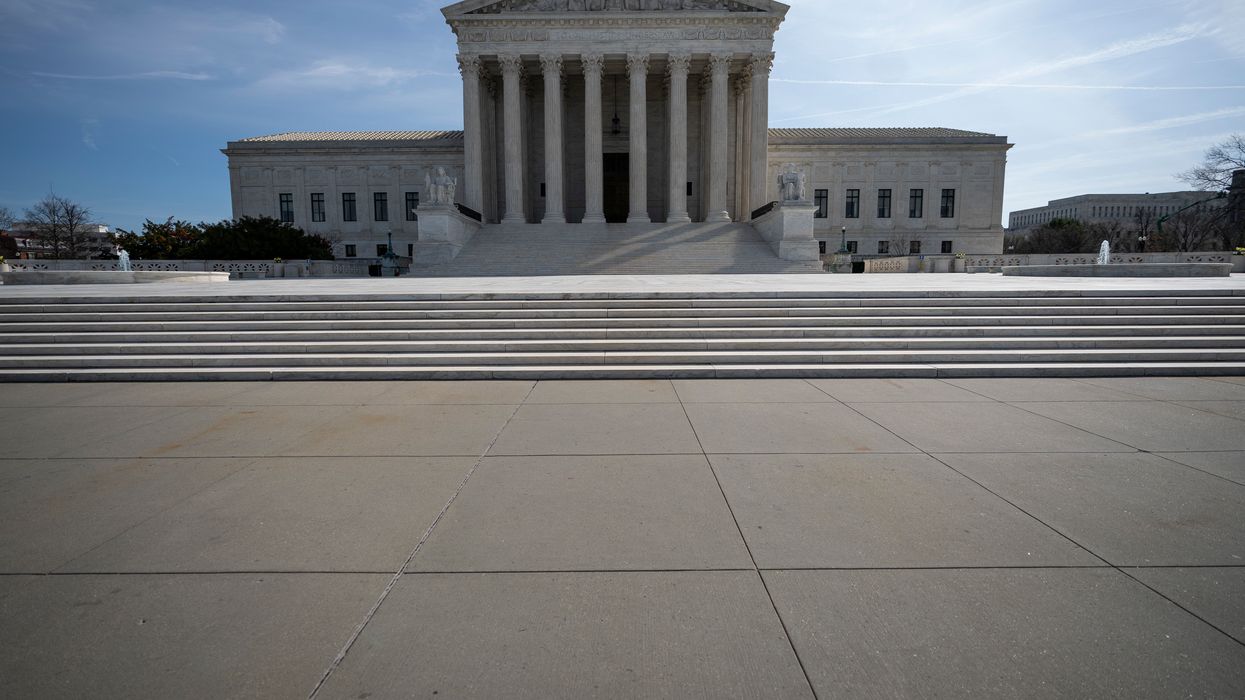Congressional observers will remember Speaker Nancy Pelosi's infamous remark when the fate of the Obamacare bill was on the line a decade ago: The House needed to "pass the bill so that you can find out what's in it."
Now former Vice President Joe Biden's refusal to tell the nation his views on court-packing, unless he wins the presidency, is a reminder of those poorly chosen words.
Court-packing is adding seats to the Supreme Court or other benches, not replacing an open seat. A court-packing scheme would be a massive shift in power from the judiciary to the executive branch, one that eliminates one of the most important safeguards built into our Constitution. Over several decades, Congress has steadily ceded power to the president by ignoring its oversight mandate, not making tough budget decisions, handing over spending prerogatives and allowing administrations of both parties to substitute regulations for legislative action.
Court-packing would be a fundamental shift of judicial independence that leads down a very dangerous road to excessive executive power — because it would mean presidents could add politically sympathetic members until the Supreme Court is little more than a rubber stamp of the personal partisan policy preferences of the president.
And if a future president acquires the bulk of the powers the Constitution gave not only Congress but also the Supreme Court, such a dangerous amount of concentrated power would undermine the constitutional system of checks and balances.
In the fall of 2013, when Democrats were the Senate majority and eliminated the effective 60-vote threshold for almost all nominations, Mitch McConnell was the Republican minority leader warning the other side "you may regret this a lot sooner than you think." This week, of course, it was the GOP leveraging its majority power to seat Amy Coney Barrett on the high court just days before the election — and the minority Democrats crying foul and warning the other side it will rue the day.
But confirming judges to existing open seats is not court-packing. Court-packing means creating new judicial positions and filling them with judges believed to be on "your" side. This is what threatens the delicate balance between our three branches. Consider this: A federal court rules an executive order is unlawful, and the president gets a Congress run by his party to add three seats to the Supreme Court — so he can name justices he can count on to overturn that original ruling. That is court-packing. And it is dangerous to create a rubber stamp on one party's rule in Washington.
Every campaign season, the parties and outside groups square off for what they agree will be The Most Important Election Ever. That's led to voter fatigue, which is compounded by the media's shiny-object coverage that leaves people lurching from one story to the next. A recent report by my organization concluded that independent voters are weary of political rhetoric. They want clear plans, clear ideas and clear approaches to solving the very big challenges we're facing.
The Constitution establishes a government that makes laws to protect the entire community, without infringing on the rights of individuals. As George Washington wrote in his letter transmitting the completed Constitution to Congress: "Individuals entering into society must give up a share of liberty to preserve the rest. ... It is at all times difficult to draw with precision the line between those rights which must be surrendered, and those which must be reserved."
This is the role of the Supreme Court, which the Framers established as an independent protector of individual rights against the legislative will of the majority, or the arbitrary use of power by the executive. A Supreme Court subjected to court-packing would surrender its independence and be judicially neutered.
Beyond that lies the real threat of the partisan minority's voice in governing getting totally silenced — if the ability to filibuster legislation gets suddenly neutralized in the Senate next year, the way judicial filibusters were made obsolete seven years ago.
That would be terrible for a country so closely split between the major parties as we have been for more than two decades.
Such an arrangement, if backed up by a newly packed Supreme Court, would allow the political majority to weaken other safeguards, such as control of redistricting and the admission of new states, that would further solidify its own control over the government. Citizens objecting to unconstitutional actions by the executive would be without recourse, because appeals to the Supreme Court would be futile.
Court-packing would be a massive gain for the concentration of presidential power and allow a dangerous amount of control by one party. It threatens to replace our two-party government, operating under a system of checks and balances, with an increasingly authoritarian executive backed up by a dominant majority with no meaningful opposition to act as a brake on his power.
Even the most partisan Democrats should be concerned about eliminating the independence of the judiciary. While they could bend the court into a willing participant in passing the most radical aspects of their legislative agenda, they do so at the risk of eliminating the essential safeguard to their own constitutional rights. History is replete with examples of power grabs that have gone bad — and there are very few examples of the rapid and excessive concentration of power that have turned out well.
Packing the court is a serious constitutional issue, demanding serious answers from the Democratic presidential challenger before it's too late. We cannot accept the notion that we need to wait for it to happen to see what it means.



















Trump & Hegseth gave Mark Kelly a huge 2028 gift